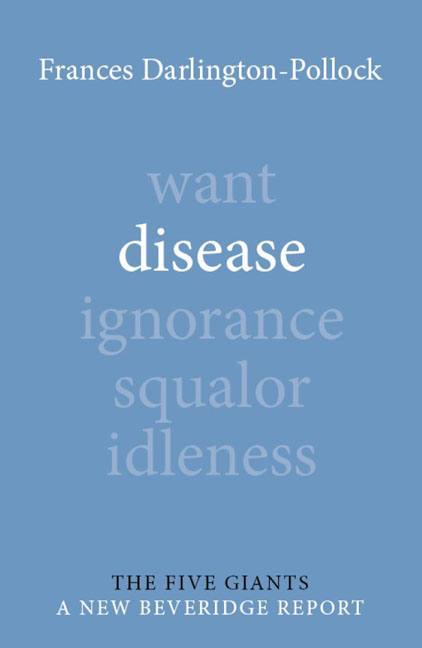Book contents
- Frontmatter
- Contents
- Acknowledgements
- 1 Introduction: A Revolutionary Moment
- 2 Disease: An Evolving Giant
- 3 Unequal Health and the Behemoth of Today
- 4 From Cradle …
- 5 … to Grave: The Problem of Age
- 6 Inequity and Inferiority: A Dismantled Health and Social Care Service
- 7 Continuing Challenges, Contemporary Crises
- 8 Shoring up “Assumption B”
- References
- Index
7 - Continuing Challenges, Contemporary Crises
Published online by Cambridge University Press: 20 January 2024
- Frontmatter
- Contents
- Acknowledgements
- 1 Introduction: A Revolutionary Moment
- 2 Disease: An Evolving Giant
- 3 Unequal Health and the Behemoth of Today
- 4 From Cradle …
- 5 … to Grave: The Problem of Age
- 6 Inequity and Inferiority: A Dismantled Health and Social Care Service
- 7 Continuing Challenges, Contemporary Crises
- 8 Shoring up “Assumption B”
- References
- Index
Summary
Nicholas Timmins, biographer of the welfare state, reflected that it was not only Beveridge's proposals that were remarkable, but also their enduring resonance with the parameters of political and public debate on the welfare state today (Timmins 2017). The thorny issue of how best to manage housing benefits in a country of vast geographical inequalities in housing costs; the difficulties defining poverty; the fair and equal treatment of women; and the significant challenges reconciling a rights-based system with sufficient benefits to sustain a healthy standard of living without disincentivizing either work or saving. Have any of these challenges been satisfactorily addressed? An eye to the violence of a decade of austerity and the crisis of Covid-19 suggests not. Both eroded hard-won gains for equality, not just in gender but across many protected characteristics. Where the burden of care disproportionately falls on women, women will always be more vulnerable to cuts in welfare and social security. Women will also be more vulnerable to the consequences of a global health crisis where care needs increase both in the public and private realm. Finally, both fiscal austerity and Covid-19 showed with painful clarity the consequences of underinvestment and disinvestment in the health and social care workforce. Beveridge wanted to secure “improved labour standards, economic advancement, and social security” for all (1942: 171). And he did, to a point. But the emerging inequalities first evidenced in the Black Report, the political squabbling over what is fair and the continued refusal to face up to the consequences of uneven power for uneven life chances have made a renewal of Beveridge's survey of the five giants more critical than ever. But where should our attention now be focused?
The early deaths of our children, the causes and consequences of their increasing weight and the mental health epidemic are clear alarm bells. There is an obvious need to dismantle the structures that not only disadvantage people over their lifetime but make them less able to manage the consequences of a lifetime of disadvantage in increasing old age. We are living longer but often in poorer health. The problem of age(ism) has made that only too clear. But these are not the only challenges facing society, nor do they capture the extent of emerging crises that will threaten health and well-being for decades to come.
- Type
- Chapter
- Information
- Disease , pp. 103 - 120Publisher: Agenda PublishingPrint publication year: 2022



